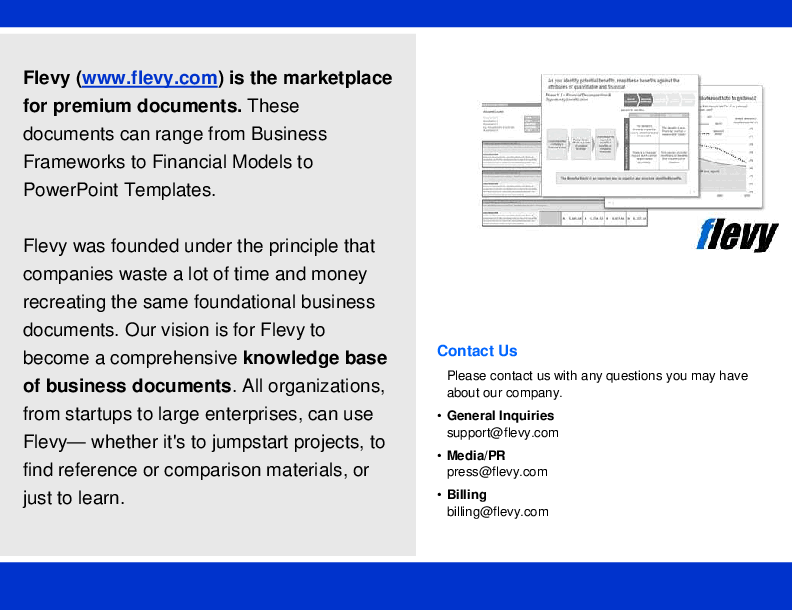Key Business Processes | Human Capital Management (PowerPoint PPTX)
PowerPoint (PPTX) 17 Slides
BENEFITS OF DOCUMENT
- offers a visual taxonomy of Key Business Processes related to developing and managing human capital
- provides a reference and a communication tool for process documentation, benchmarking and/or analysis projects
DESCRIPTION
This document provides a thorough visual taxonomy of key business processes related to developing and managing human capital based on APQC's cross-industry process classification system (PCF), the most used process framework globally.
A process classification framework can be utilized in many practical ways. For example, it can provide a:
1. framework and checklist of processes when scoping process-related projects
2. starting point for a process documentation, offering a detailed list of processes to use in process flows, maps, and/or models
3. basis for structuring a process repository, whether using a sophisticated software or simple folders
4. foundation for undertaking process-related benchmarking and generating business analytics
This document follows the structure, and facilitates the usage, of APQC's PCF v7.3.1. It includes 8 process groups, 41 processes, and 94 process activities related to developing and managing human capital.
Contents
1. PCF Levels
2. PCF Overall Structure
3. Taxonomy for the Process Category – High Level
4. Taxonomy for the Process Category – Detailed
5. Taxonomy by Process Group – Detailed
Got a question about the product? Email us at support@flevy.com or ask the author directly by using the "Ask the Author a Question" form. If you cannot view the preview above this document description, go here to view the large preview instead.
Source: Best Practices in Human Resources, Process Mapping PowerPoint Slides: Key Business Processes | Human Capital Management PowerPoint (PPTX) Presentation, ILMAM - Strategy & Management Consulting
This document is available as part of the following discounted bundle(s):
Save %!
Key Business Processes | Management and Support Processes
This bundle contains 7 total documents. See all the documents to the right.








